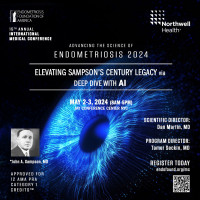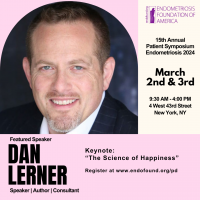
Principal Investigator:
Anna Z. Pollack, Assistant Professor, Department of Global and Community Health, College of Health and Human Services, George Mason University
Key Personnel
Germaine M. Buck Louis, PhD, MS
Summary
Project Narrative Evidence suggests that endocrine disrupting chemicals (EDCs), which can disrupt normal endocrine function, contribute to endometriosis. EDC exposure has been said be responsible for billions of dollars in costs from gynecologic disease, including endometriosis (Hunt et al. 2016). However, the majority of studies seeking to understand the relationship between EDCs and endometriosis are faced with two main problems. First, they measure EDCs only in serum or urine and second, they fail to consider endometriosis subtype (Smarr et al. 2016). Moving beyond these two common approaches is critical to significantly advance our understanding of how EDCs contribute to endometriosis risk. Thus far, only one study has examined a novel EDC exposure biomarker: the adipose to serum ratio (Ploteau et al. 2016) and few have examined EDCs in relation to endometriosis staging (Martínez-Zamora et al. 2015; Ploteau et al. 2016). Barriers to this work include the difficulty obtaining adipose tissue for women with and without endometriosis, particularly in non-operative cohorts; challenges to accurately diagnose and stage endometriosis, particularly absent expert surgical assessment; and the high cost of EDC measurement; which often preclude its evaluation in multiple biomarkers (serum and adipose tissue).
Bio
Principal Investigator: Anna Z. Pollack, PhD, MPH is an assistant professor in the Global and Community Health Department, College of Health and Human Services. Dr. Pollack received her PhD from Johns Hopkins University. Dr. Pollack is trained as a reproductive and environmental epidemiologist, with expertise in addressing environmental factors that influence women’s gynecologic disease.








